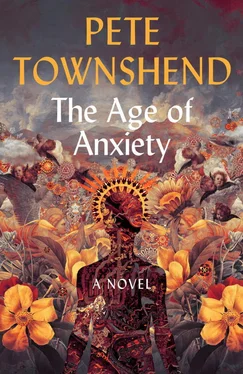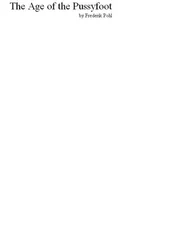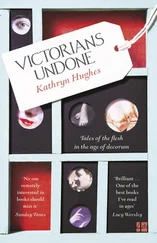Maud traveled north to rescue her old man the same evening, and after a brief appearance in court for disturbing the peace he was released. Then, following a brief roundup of his possessions, spread all over a dozen hiding places in the Lake District, she brought him home to their house in Chiswick. The one item she left behind was his hang glider.
Despite his latest vision, it seemed that—at last—he had remembered who he really was, and had been all along.
“I still wanted to call him Paul of course,” Maud recalled. “But even our close friends started to call him Old Nik, despite his youthful-seeming suntanned body and his lovely, long curly hair, which was still almost golden.”
Maud caught my eye as she said this. I must have looked skeptical again, for she looked down at the floor shyly and seemed slightly ashamed.
“I’ve had visions,” I said suddenly, wanting to bring her back to the present. “I think I understand what Nik saw, or thought he saw. My visions were induced by drugs, but I saw extraordinary things.” I wanted to tell her about screaming faces I had seen in an old bedhead, while I was still married to Pamela. It was a long story. I took a breath to begin, but as if by this confession of sympathy I had qualified myself to be worthy of the moment, Maud unrolled the waterproof tent groundsheet she had brought with her, and I gazed at the first of her husband’s magnificent drawings. I was astounded.
I greedily flipped through the sheets: there were at least twenty, and Maud said there were dozens more. Each one portrayed with breathtaking precision a single freeze-frame of Old Nik’s vision of the angelic Final Harvest.
“This work is extraordinary,” I spluttered. “It’s stunning stuff. Imagine—if he could really see what he’s depicted here—what that means!”
She told me that Old Nik had spent a number of his years while living rough making the drawings; that they were rolled up and stored in the cave where he had often sheltered. “They were a complete surprise to me,” she continued. “Paul had always been a competent artist. Ex–art school like so many of his rock-star peers, but he’d never drawn more than a few simple portraits for family birthday cards in the past.”
I was gratified that none of the sheets was signed, because I knew immediately and instinctively that Nikolai Andréevich was a better moniker for an Outsider Artist than Paul Jackson. Nikolai Andréevich , I mused silently. Born while filming the story of his own rise and fall. Everyone in the world of Outsider Art should be gratified he had gone mad in the process.
It is a cliché to say it—and I am ashamed that such a bald notion passed through my mind as I surveyed the exquisite pencil and charcoal drawings before me—but I heard myself whisper. “Maud,” I said, my voice barely audible and quavering a little with excitement. “You and I are probably going to make a lot of money!”
For the first time since she’d arrived in my apartment Maud looked happy, with a happiness I felt I knew. Again, my heart fluttered.
By the time Maud came to visit me in 1996 Walter was already established in a successful career. His eponymous pub rock band was known as Big Walter and His Stand, later known simply as the Stand. He called himself Big Walter in homage to Little Walter, his harmonica-playing R&B hero from Memphis, Tennessee. Walter’s band’s name, the Stand , was in fact a reference to a way of standing. At certain points in his performance he would position himself like a statue, his harmonica in his right hand ready to play, held in what appeared to be an attempt to keep light from his eyes. His left hand was stretched out as though he were balancing on an imaginary surfboard, his knees slightly bent and turned a little to the right, his body twisted slightly at the waist. When he took this pose, the audience knew they could soon expect a powerfully explosive harmonica solo, and the girls began to scream and the boys to shout.
After one such exciting night in 1995, Walter showed up at my flat. As I opened the door to him I was reminded of how good-looking he was, with his high cheekbones, but also that by some measures of good looks he was flawed. His eyes were rather small and a somewhat indistinct color, and for a man just twenty-eight years old he looked weather-beaten, like someone who had worked for years on the deck of a fishing boat, or thrown ropes from a horse to lasso cattle. His hair was black and thick, worn long.
Now he looked anxious, but didn’t speak immediately.
It was late, and I was ready for bed, but he knew I took my role as his godfather seriously and my door was always open to him. I had always been his mentor. I had long wondered if Walter thought I understood him in ways his parents didn’t. Harry and Sally had been confused when he completed his horticulture degree and picked up his harmonica again. Had they expected he would become a sort of gentleman landscape gardener?
“Uncle Louis,” he said. (He’d always called me Uncle Louis.) “I need some help.”
“OK,” I replied, worrying he’d turned to drugs or gotten into trouble with one of his fans. “What’s up?”
“It’s hard to talk about this. I’m not going mad, but I know when I start to speak about what’s happening to me you might think…” Walter seemed to lose momentum.
“Walter,” I said gently, “of course you’re not going mad. What is happening to you?”
“I’ve been hearing shit,” he said. “Usually after gigs; I can’t sleep.”
“Hearing shit,” I teased. “Mmm. That’s intriguing.”
“Uncle Louis.” He sounded rattled. “I’m frightened.”
“Tell me what happens,” I said, serious now.
“Our shows have been amazing recently. Intense. I’ve been singing well, but my harp solos have been getting better and better.”
“That’s good.”
“Yeah, it’s cool, and the audiences have been going completely nuts.”
“That is cool,” I agreed. “So what’s the problem?”
“I can’t work out quite what’s going on, or why it’s happening, but I think I am making some kind of deep connection with the people down the front.”
Frankly I had no idea what Walter was going on about and was trying not to look blank.
He continued earnestly. “I know you deal with artists who have mental trouble, but they kind of fold it into their creative work.”
“Walter, just tell me what’s going on.”
“You know, I’ve spoken to you about this in the past; some of our fans are there every single night, often right in the same position.”
“That irritates you? I think I remember you saying as much.”
“I fucking hate it, but I hate it that I hate it: they are fans. They pay the rent after all. But I feel I don’t have to win them over; they’re in the bag already. They don’t offer a challenge. They know what I’m going to do next, what I will say between songs. I find myself some nights actually following their emotional lead rather than driving my own journey.”
“I see, but you said you were hearing stuff,” I said. “What is it you’re hearing? Is this to do with these loyal fans?”
“When the music finishes, when the applause dies down, there is music in my head that carries on—and sometimes it feels very dark.”
“Your ears are ringing?”
Walter laughed. He had a rhythmic laugh that rattled like a machine gun. For a moment the concern left his face, and he looked young again. “Yes, of course they are! But this is different. This is music, sound, and it’s more than something in my ear. It’s in my head and I can feel it as well. It’s like I’m having attacks: sound attacks. It sounds crazy. I knew it would sound crazy.”
Читать дальше












